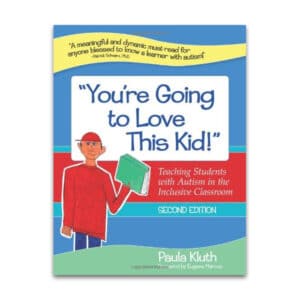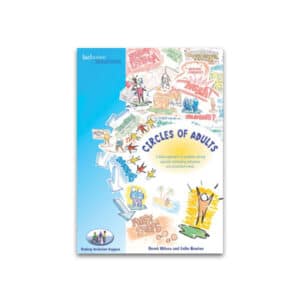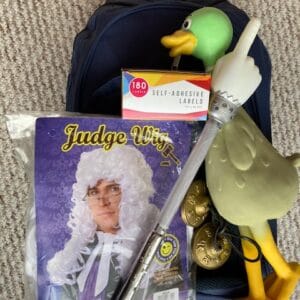Description
Format:
ISBN:
Description: Three great, radical, world changing books. Save money when you buy our three newest books Restorative Solutions,Dear Parents and Seeing the Charade together. £39 saving you over £7.
Restorative Solutions by Colin Newton and Helen Mahaffey is a practical book about how to implement Restorative interventions and approaches in schools. The book gives guiding ideas, principle, theory and values as well as direct scripts for those involved in direct contact with pupils, staff and parents. Restorative Solutions are about inclusion, transforming relationships and radical ways of impacting upon conflict and rule breaking behaviour. All schools in the UK and Support Service staff will want a copy. Parents will also find it an extremely valuable resource for bringing up their own children peacefully.
Dear Parents by Micheline Mason The title of this book is deceptively simple and conceals the fact that the reader is about to encounter voices that will speak of the relationship between disabled children and their parents. The first voice is Micheline’s. Disabled person and parent of a disabled child – this is the voice of the disability rights activist, hero of the education inclusion movement and poet. Of all the books written for parents of disabled children (many penned by non disabled parents, others by ‘experts’ in the field) – there is not one that is quite like this one. Micheline is beautifully placed to offer the wise counsel and urgent warnings for parents that this book contains. In essence this book is about helping parents learn how to navigate around and away from the medical model of disability and bring the social model of disability home for them and their children (and if you aren’t familiar with the concept of a medical and a social model of disability then you really must read this book, if you are familiar with these ideas, then this book will deepen your understanding of the impact of both these ways of thinking on the lives of disabled children and their families) The second voice to speak comes from the survivors of special education – those who eked out an education and searched for love within their segregated settings – all through the 20th century and into the 21st. Within these testimonies darker currents are flowing quite close to the surface and “Dear Parents” does not flinch from listening to their unanswered questions and unresolved pain of separation. Many childhood memories come to the surface in a kind of composite open letter to their parents in a testimony that runs throughout the book skilfully orchestrated by Micheline’s part autobiographical connecting themes. This voice relates the unwritten (and untaught) social history of disability and its present day legacies. Parents of today’s young disabled children need to listen hard to what this voice has to tell them. This voice also talks of death and how even that event can be claimed by the medical model. As Liz Crow (1994) said; “I don’t think it is an exaggeration to say that the social model has saved lives” – it isn’t and this book will tell you why and how.
Seeing the Charade Written by Carol Tashie, Susan Shapiro-Barnard, and Zach Rossetti. What We Need to Do and Undo to Make Friendships Happen. Conclusion by Jamie Burke Original art by Kristína Holúbková Published by Inclusive Solutions; Nottingham: UK, 2006 First the good news. The world is starting to catch on to what so many of us have been saying for decades – friendship matters for everyone. Mastering math or knowing how to cook a meal is all well and good, but without people to share your life, they are hollow treasures indeed. Friendship is what makes the world go ’round and everyone needs and deserves full and rich social lives. Now for the bad news. For far too many students with disabilities, loneliness is still their most common complaint. Despite our recognition of the importance of relationships and belonging, many students still do not have real friends. And many of the strategies we use to solve this problem, not only fail, but actually make the situation worse. But now there is a book that offers some help. Seeing the Charade: What We Need to Do and Undo to Make Friendships Happen looks at the reasons why real friendship is such an elusive goal for so many students with disabilities. It explores the barriers to friendship that exist in our schools and communities and offers some suggestions on how to overcome these barriers. And it offers specific strategies of how we all can support the students we know and love to have the kinds of social lives they want and deserve.
![b8j8cSkw[1]](https://inclusive-solutions.com/wp-content/uploads/2015/11/b8j8cSkw1.jpeg)



